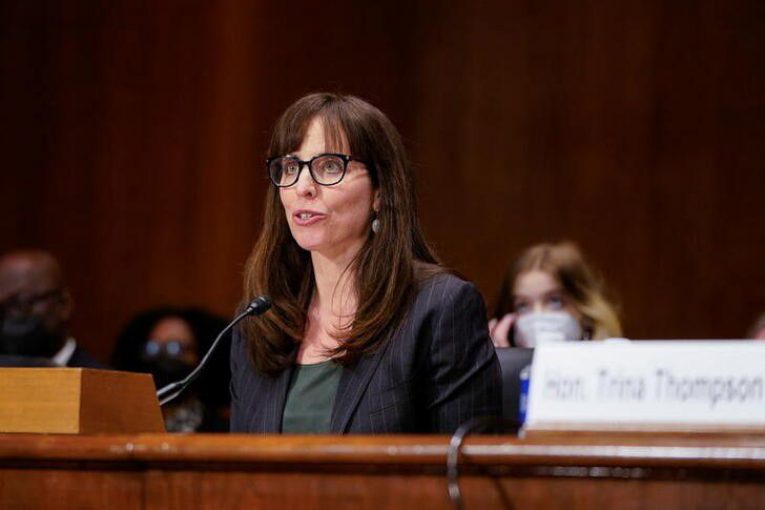

By Rory Fleming
On paper, Nina Morrison is eminently qualified to be a new judge for the United States District Court for the Eastern District of New York. A former executive director of the Innocence Project, she has successfully freed approximately 30 people from wrongful convictions. She graduated from an Ivy League law school and an Ivy League undergraduate college.
But, during her Senate Judiciary confirmation hearing, we saw how resumes and successfully handling big cases aren’t everything. Populist politicians largely do not believe in the basic legal ethics concept that defense lawyers’ morality cannot be presumed to be the same as their clients. And clients, even those who are factually innocent, will often still be convicted of crimes.
In particular, Senator Tom Cotton (R-AR) ripped into Morrison because of her work on Ledell Lee’s case. Lee was executed by his state for a 1993 murder in 2017. He insisted on his innocence  up until his death.
up until his death.
Historically, the prosecutors who most frequently seek the death penalty are ethical nightmares. They bribe witnesses into implicating the wrong suspects, use constitutionally impermissible arguments, and carefully craft all-white juries based on who is most likely to sentence people to death.
Less appreciated is the fact that capital defense lawyers are also often terrible. They have fallen asleep during trial and thrown out key evidence that could have exculpated their clients. Courts often do not care about the issue, despite the Supreme Court having created standards to govern ineffective representation. After Texas lawyer Joe Cannon fell asleep while representing Calvin Burdeen, a man facing the death penalty for murder, the Fifth Circuit ruled that Burdeen did not deserve a new trial for that reason.
Bad defense lawyering was heavily at play in every stage of Lee’s case.
Harvard researchers found that Lee’s trial lawyers failed to conduct the bare minimum of mitigation research to argue that he should not get the death penalty. His post-conviction lawyer at the state level was lambasted by the Arkansas Supreme Court for, among other things, “being unable to locate the witness room;” “repeatedly being unable to understand questions posed by the trial court or objections raised by the prosecution;” “not being familiar with his own witnesses;” and “rambling incoherently, repeatedly interjecting ‘blah, blah, blah,’ into his statements.”
In the middle of representing him, one of Lee’s federal post-conviction lawyers voluntarily surrendered his law license because of concerns that his bipolar disorder with psychotic features and anxiety was getting in the way of competent representation.
When Morrison said that there was “compelling evidence” that Lee was quite possibly innocent, Senator Cotton guffawed, stating, “Compelling evidence that the court somehow overlooked for 20 years?” But this should not be too hard to believe. Appellate state courts, especially in the South, are devastatingly non-rigorous when it comes to criminal law.
“Cowboy” Bob Macy, the former Oklahoma City District Attorney from 1980 to 2001, was the prosecutor with the most prolific death penalty record in US history: he personally obtained 54 death sentences. He also was notorious for bullying elected appellate judges who ruled against his office in death penalty cases. Due in part to Macy lobbying local news reporters, the state’s biggest paper bellowed statements like “Another convicted killer has won a new trial because of an Oklahoma Court of Criminal Appeals majority that seems more interested in finding reasons to reverse than in upholding the death penalty.” It did not matter if these judges were just following the law; these attacks became a deterrent against scrutinizing trial verdicts.
Judge J. Harvey Wilkinson on the Fourth Circuit Court of Appeals, which covers federal case appeals from Maryland, North Carolina, South Carolina, Virginia, and West Virginia, has been described as “consistently conservative” by ABC News, which noted how he grants “hardly any death row reviews.” But even Judge Wilkinson, a Reagan appointee, could not abide the entire South Carolina state court system ruling that a prosecutor calling a Black murder defendant “King Kong” and a “beast of burden” did not “improperly inject racial issues into the trial.” He upheld a ruling from the federal post-conviction court that gave the defendant, Johnny Bennett, a new trial.
Only one of the four states with the most exonerations is located in the South. The reason is probably the fragile relationship with the rule of law many southern courts seem to have, rather than a statement on the justice system working better there.
As unjust as Morrison’s treatment has been, there are lessons to be learned. Innocence advocacy has become the low-hanging fruit of criminal justice reform advocacy, since no one wants an innocent person in prison, at least in theory. But advocates should go beyond caring about injustices in the criminal legal system only when those bearing the brunt claim innocence. To law-and-order conservatives, we are all in the same bucket anyway. An Innocence Project litigator may as well be an abolitionist to politicians like Cotton, because they supposedly disrespect law enforcement all the same.
It is another reason that the “guilty project,” or fighting for the rights and dignity of people who admittedly committed crimes, is often more compelling to me. We should never be giving credence to torture or abuse, and disproportionately harsh consequences like the death penalty for people who have committed crimes is a form of abuse.
The draw of a focus on innocence for many reformers is a perception of moral cleanliness, a desire to say “we support good people” rather than “we support people who committed terrible wrongs.”
Out in the real world, however, this is a distinction without a difference. People like Tom Cotton will go on the offensive all the same.
Rory Fleming is an attorney and a writer

Ok then!
Mr. Fleming never fails to ‘entertain’. What good his flame-thrower articles do is another matter.
I believe what he’s saying is tough-on-crime politicians are treating people involved in the Innocence Project as if they are soft-on-crime rather than simply working to free actual innocent people. I can go along with that premise. Not sure why you have to set the Earth on fire to get there.